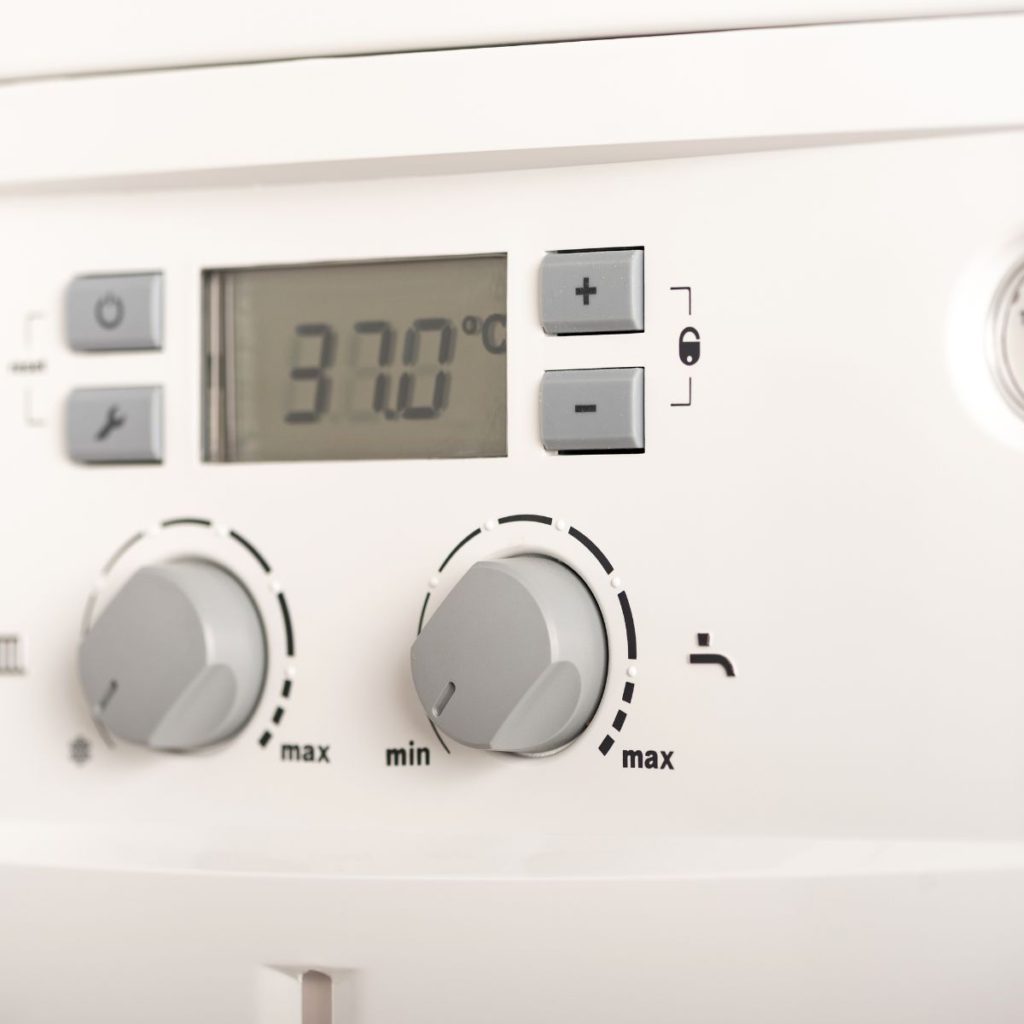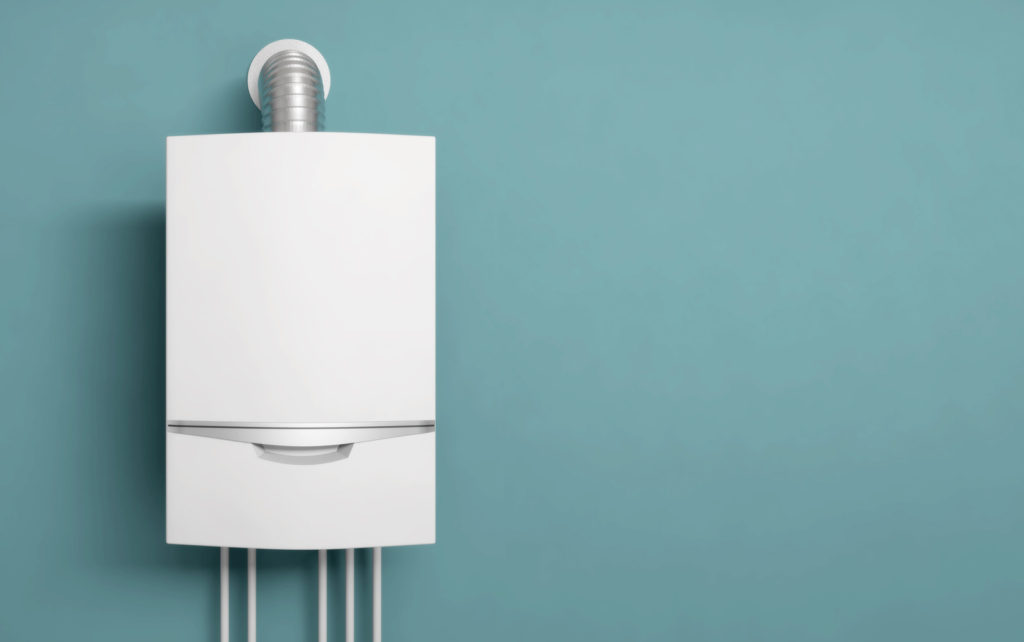A combi boiler is a combination boiler that provides both central heating and hot water on demand, without the need for a separate hot water cylinder. A combi boiler is the most popular type in the country. It can heat up the central heating and hot water directly from the mains supply in one unit. This article will provide an overview of the main advantages and disadvantages of installing a combi boiler in your home.
We will look at the pros such as compact size, high efficiency, and instant hot water, as well as the cons like reliance on good mains pressure and inability to run multiple taps at once. Carefully considering these factors will help you determine if a combi boiler is the right choice for your household’s needs.
An overview explaining what a combination boiler is and how it works
Combi boiler Pros and Cons
Combi boilers come with pros and cons. The main benefits are they are highly efficient, cheap to install, compact, and save valuable space. Some of the disadvantages include the many complex boiler components that are prone to break down and expensive to replace, limited hot water availability at multiple taps, and no backup hot water source if things go wrong.

Pros of a combi boiler
There are several key advantages that make combi boilers an attractive option for many homeowners:
Compact size
One of the biggest advantages of a combi boiler is its compact size compared to a conventional boiler and hot water cylinder setup.
Combi boilers are ideal for houses with limited space because it provides heating and hot water in one unit, without the need for a storage cylinder. They can also be fitted in almost any room in the house due to their size.
- Since combi boilers heat water on demand, there is no need for a bulky hot water storage tank.
- This frees up a lot of space in your home, often an entire airing cupboard.
- Combi boilers can be conveniently installed in a kitchen cupboard, airing cupboard, or loft space.
Highly efficient
Combi boilers are highly efficient. Upgrading to a new combi condensing boiler will give you efficiency rating of more than 90%. This means at least 90% of the fuel gas entering the boiler is used which is much more than older boilers.
- Modern combi boilers are very energy efficient, with ratings over 90% in many cases.
- This is because they intelligently heat water only when required, rather than constantly heating a tank.
- Higher efficiency means lower energy usage and bills. You can save on average £100 per year.
Provides instant hot water
Water comes directly from your mains supply so you can get limitless hot water on demand and there is no need to store the hot water.
- Combi boilers provide hot water instantly when a tap is turned on.
- There is no waiting time for a tank to heat up, so you never run out of hot water.
- This makes them very convenient for households with high hot water demands.
| Boiler Type | Hot Water Delivery |
|---|---|
| Conventional | Very limited hot water, tank needs re-heating |
| Combi | Instant unlimited hot water on demand |
Saves money on energy bills
- As mentioned, combi boilers use less energy due to higher efficiency.
- By not constantly heating a tank of water, your energy usage is reduced.
- This translates into lower energy bills, with estimated savings of £100 per year.
- Combi boilers have a smaller carbon footprint too.
In summary, combi boilers provide some great advantages over conventional systems in terms of compact size, efficiency, instant hot water delivery, and saving money on bills.
Cheaper to install
Overall, combi boilers are cheaper to install than other types of heating systems. This is because you don’t need separate tanks and cylinders as well as all the pipes going to them. As a result, installation costs of combi boilers are much cheaper.
Quicker to install
There are fewer external parts to a combi boiler system and this makes them quicker to install. Without the need for a hot water storage cylinder, a boiler replacement can be done within a few hours.
Safer
Combi boilers are room sealed which means they take air for combustion from outside, as well as removing exhaust gases to outside. This makes them much safer. Also, the water is safer to drink as it is fresh directly from the mains. Other systems may store cold water in a tank first.
Economical
Combi boilers work by heating only the amount of water you need when you need it, which makes them economical. Other hot water systems heat the water up beforehand and store it for later use, and the water cools as its waiting to be used.
Easier to service and repair
Combi boilers are the most popular type of boiler so you won’t have a problem finding an engineer to service them annually. All the servicing can be done in one room where the boiler is located. Even with breakdowns, it is easier to find replacement parts with combis.

Cons of a combi boiler
However, there are also some potential disadvantages to be aware of before installing a combi boiler:
Requires good mains water pressure
Combi boilers are highly dependent on mains pressure and they don’t perform well in properties with poor pressure. Check your incoming pressure before deciding on whether to buy a combi boiler.
- Combi boilers use the mains water supply directly, not a tank like conventional boilers.
- They require decent water pressure from the mains to function properly.
- If your home has low pressure, it can result in weak flow from taps and showers.
Cannot run multiple taps at once
Combi boilers work well in smaller properties with one bathroom. If there are multiple hot water outlets that are opened at the same time, the hot water will slow down considerably. The further you are from the boiler, the more limited the hot water availability.
- Combi boilers have a limited flow rate because they heat water on demand.
- They may struggle to supply enough hot water for multiple taps/showers at once.
- Running 2-3 taps simultaneously can cause flow to reduce or run cold.
| Boiler Type | Simultaneous Hot Water Flow |
|---|---|
| Conventional | Able to supply multiple taps |
| Combi | Limited to 1-2 taps maximum |
No immersion heater as backup
If a combi boiler breaks down, you have no hot water or heating backup, both will be unavailable until the boiler is fixed. You do not have the benefit of an immersion heater to at least get hot water. This is a major disadvantage of combi boilers.
- Combi boilers provide both heating and hot water in one unit.
- If the boiler breaks down, you are left with no hot water or heating until repaired.
- Conventional systems have a separate immersion heater that can provide hot water as a backup.
Does not work well with power showers
Combi boilers are unable to support power showers because they rely on mains pressure, whereas power showers want higher pressure to function well. So you will need to have a storage cylinder with a different heating type.
- Power showers require separate pumps to boost water pressure.
- Combi boilers rely solely on mains pressure so cannot provide enough flow.
- Fitting a combi boiler means you may need to replace a power shower.
More expensive/complex repairs
With hot water and heating in one unit, there are many complex parts that can go wrong. Most components are built within the boiler so if something goes wrong, only a registered engineer will be able to fix it which can cost more.
- Combi boilers have complex electronics to control on-demand heating.
- Repairs tend to be more expensive due to added complexity.
- Engineers often charge hourly, so longer repair times also cost more.
In summary, potential disadvantages include reliance on good mains pressure, inability to handle multiple hot water demands, lack of backup immersion heater, and more costly repairs. These should be considered before installing a combi boiler.
Slower water flow rate than a conventional boiler
Combi boilers take direct mains water and heat it up instantly, so the water flow rate will be slower than a heating system with a tank. If there is high water demand at any one time, you will get hot water at a slower rate.
If you are regularly having problems with your combi boiler and looking for an affordable way to be covered, click here to see what Hometree offer and why we recommend them.
Here’s a table summarising the pros and cons of combi boilers:
| Pros of Combi Boilers | Cons of Combi Boilers |
|---|---|
| Compact size: Takes up less space | Requires good mains water pressure |
| Highly efficient: Energy savings | Cannot run multiple taps at once |
| Instant hot water: No waiting | No immersion heater as backup |
| Saves money on energy bills | Doesn’t work well with power showers |
| Cheaper to install | More expensive/complex repairs |
| Quicker to install | Slower water flow rate than conventional |
| Economical: Heats water on demand |
Conclusion
In conclusion, combi boilers offer some significant advantages but also have some disadvantages to consider.
The main pros are the compact size, high efficiency, instant hot water delivery, and potential to save money on energy bills. These features make combi boilers an excellent option for many smaller households with 1-2 bathrooms.
However, the cons such as reliance on decent mains pressure, inability to handle multiple hot water demands, and lack of backup heat require careful thought, especially in larger homes.
Ultimately, the suitability of a combi boiler depends on your household’s specific requirements.
Related Articles:
